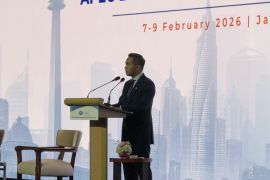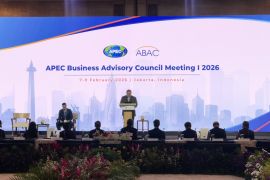The report to the Asia-Pacific economic leaders launched on Thursday is presented annually by ABAC, the private-sector arm of APEC, to advise leaders and other APEC officials on issues of interest to business.
The report highlighted the council’s theme for this year "People, Place and Prosperity," according to a written statement issued by the APEC Business Advisory Council and received here on Thursday.
"In these challenging times, when the need for universal vaccination is acute, we must put people first," Rachel Taulelei, the 2021 Chair of ABAC, remarked.
"Getting everyone vaccinated is the key to overcoming the health crisis, enabling us to reopen borders safely and seamlessly, and also the critical work of restarting the engines for growth," Taulelei affirmed.
"Our challenges do not end there. We need to move forward in a way that respects the environment in which we live, and we have to advance prosperity in a way that is not just sustainable but also inclusive," she emphasized.
This year’s report has set out 43 recommendations for leaders encompassing the five pillars of regional economic integration, sustainability, inclusion, digital and the economy.
Related news: APEC looks to partnerships to back business recovery
The report also included separate sections on border reopening, the World Trade Organization (WTO), the council’s response to climate change through climate leadership principles for businesses, trade in renewable energy, and indigenous business leaders’ statement of priorities.
In order to foster the well-being of people, ABAC members called for capacity building and structural reform efforts to empower small businesses, women, and indigenous communities.
The council agreed in August on a set of guidelines called the Climate Leadership Principles to guide its own climate response and to encourage businesses in the Asia-Pacific region to adopt practices to address climate change at the enterprise level.
ABAC members also developed a framework for trade and investment in renewable energy and called for broader adoption in APEC.
"In order to safeguard the place in which we live, sustainability must drive all of APEC’s activity," Taulelei noted.
"Achieving a digitally enhanced, trade-friendly, and sustainable food system is also foundational to recovery and building a better future," she stressed.
Related news: APEC Business Advisory Council issues five recommendations
Moreover, Taulelei emphasized that APEC can demonstrate real leadership as it has done so effectively in the past by championing a credible and relevant WTO and building toward the realization of the Free Trade Area of the Asia-Pacific (FTAAP).
"There is an urgent need to realize the potential of the digital economy through upgrading skills, investing in infrastructure, and enabling a more seamless, interoperable digital trade. These actions need to be supported by ongoing efforts at structural reform," she remarked.
APEC Secretariat’s Executive Director, Rebecca Sta Maria, welcomed the recommendations from ABAC, noting that cooperation between the public and private sector has become even more crucial as the region builds back its resilience and dynamism.
"Commerce is the lifeblood of the region and business is the engine of economic growth," Sta Maria stated.
"Businesses have played an integral role in expanding the region’s prosperity, and they will play a significant role in stimulating not only economic recovery but also growth that is inclusive and sustainable," she added.
Related news: Asia-Pacific businesses press for unified action to battle pandemic
Related news: Indonesia to play key role in Asia-Pacific economic integration: ABAC
Reporter: Yuni Arisandy Sinaga
Editor: Suharto
Copyright © ANTARA 2021












